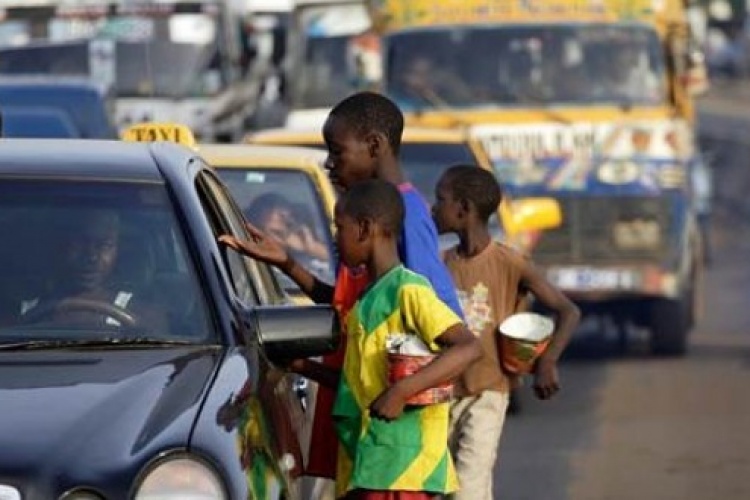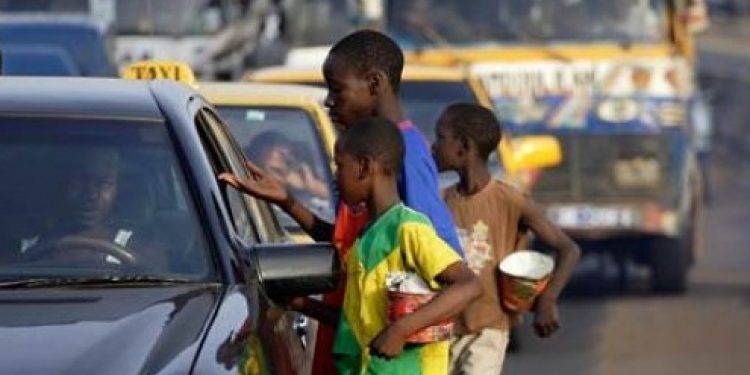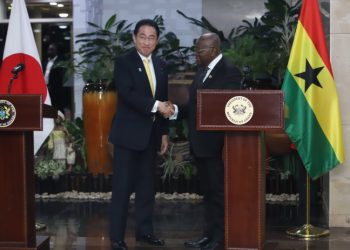
Behind the statistics of any government operation lie real people, each with their own powerful story of hope and hardship. The recent intervention by Ghana’s Immigration Service (GIS) in Accra brings this reality into stark focus, shedding light on the urgent and complex connection between cross-border movement and urban poverty. GIS apprehended 2,041 foreign nationals who were found begging on the streets: 384 men, 577 boys, 525 women, and 755 girls.
Assistant Commissioner Mike Amoako-Atta of the GIS, in defending the operation—referred to as a “swoop”—stated that the action was necessary to “sanitize our streets.” Reports from Multimedia’s Joy News showed some members of the public expressing support for the initiative, hoping it would make the streets safer and cleaner.
These individuals now face profiling ahead of potential deportation. This move raises questions beyond mere logistics. It calls for a deeper and much-needed examination of governance, respect for human dignity, and regional stability—matters that concern us all, whether in Ghana, across Africa, or globally.
Accra’s Order: A Nation’s Prerogative?
The government of Ghana, through its Ministry of the Interior, likely prioritises the enforcement of national laws and the rising demands of urban life. Like many other countries, Ghana is grappling with the social and economic impacts of large-scale migration into metropolitan areas. When over 2,000 people are found begging on street corners, it is a clear sign of vulnerability and informal economic activity—conditions that can strain local resources and raise legitimate concerns about public order and safety.
As one Accra resident noted on social media:
“We have sympathy, but Accra can’t become the solution for every challenge in West Africa.”
This sentiment, though one voice among many, reflects the broad support among Ghanaians for the GIS operation, which many see as a step toward protecting the country’s sovereignty and maintaining order in its capital. Additionally, authorities may be acting on intelligence about possible networks exploiting and trafficking people—particularly children—to beg on their behalf. This adds a deeper layer of urgency to the operation.
However, some Ghanaian commentators have raised valid concerns about the optics of such a large-scale crackdown. They question whether sufficient social safety nets exist within Ghana to address poverty that could one day drive even its own citizens to the streets.
Human Hearts: Rights and the Migrant’s Plight
Nonetheless, the agency’s actions must be viewed through the lens of human rights. International treaties such as the Universal Declaration of Human Rights (UDHR) affirm the inherent dignity of every human being. For many caught up in the Accra sweep, begging is not a choice—it is often a last resort, driven by harsh economic conditions, displacement, or war in their home countries. Forcing these people—particularly the over 500 children—to resettle demands careful assessment of their fragile circumstances.
The United Nations High Commissioner for Refugees (UNHCR) has rightly emphasised that “refugees and asylum-seekers should not be punished for illegal entry or presence, particularly if they are escaping persecution or conflict.” This is not only consistent with international law but resonates with the reasons many people flee to seek asylum—or simply survival—in another country.
While not all of those detained are refugees, their situations share a unifying thread: desperation.
Human rights organisations such as Amnesty International have consistently called on states to protect migrants from exploitation and violence, address the causes of migration, and reject the notion of indiscriminate deportation as a solution.
In response to the operation, Ghanaian human rights NGO Rights Ghana released a statement demanding that due process be observed and that all detainees be treated humanely. Their call to action to the GIS includes ensuring that the most vulnerable—especially children—are identified and provided the support they need, not subjected to deportation. The ongoing profiling must be transparent and must ensure that individuals with legitimate protection claims receive the necessary relief.
West Africa’s Web: Movement and Connection
The fact that so many foreigners were involved speaks volumes about the level of interconnectedness in West Africa. ECOWAS agreements aim to promote the free movement of citizens, goods, and services in the spirit of regional solidarity. However, economic disparities and political instability in some member states often compel individuals to seek alternatives—however precarious—such as street begging.
Dr Fatima Sow, a leading scholar on West African migration, notes:
“The ideals of ECOWAS mobility are often challenged by the lack of strong social safety nets and the uneven economic playing field across the region, which can create vulnerabilities in host countries’ urban centres.”
This GIS operation, therefore, warrants serious regional dialogue. ECOWAS itself has been working to deepen community engagement and improve the implementation of its free movement protocol, recognising the challenges of managing migration within the bloc. Analysts suggest this incident reveals the urgent need for improved coordination on regional social and economic development to address root causes of migration.
How do West African countries manage intra-regional migration while upholding the rights and dignity of those on the move?
Untold Stories: Lives Behind the Numbers
To fully grasp the impact, we must try to understand the lives of those most affected. Why were these individuals—including so many children—begging on the streets of Accra? Were they fleeing violence, escaping dire poverty, or simply out of options? Were some victims of trafficking or forced exploitation?
Their stories—too often ignored by policymakers—are vital to understanding the human side of this crisis. Global experience shows that people rarely migrate by choice; rather, they are pushed by necessity, often in search of mere survival.
Simply returning them to their “multiple destinations” without addressing the reasons they fled risks perpetuating a painful cycle of desperation.
For Ghanaians, this raises questions about the country’s role in the region and the ethical implications of such enforcement actions. For Africans more broadly, it highlights the complexity of poverty-driven migration and the shared responsibility to address it.
Reports from similar operations across the continent suggest that many deportees return—lacking better options in their home countries—compounding the challenge.
Finding the Balance: Nation and Humanity
The GIS operation in Accra underscores a universal tension: the balance between a nation’s right to control its borders and its ethical responsibility toward vulnerable populations.
The Constitution of the Republic of Ghana, Chapter 3, Article 12(1), affirms:
“Every person in Ghana, whatever his race, place of origin, political opinion, colour, religion, creed or gender shall be entitled to the fundamental human rights and freedoms contained in this Chapter, but subject to respect for the rights and freedoms of others and for the public interest.”
This clause reinforces Ghana’s commitment to upholding the human rights of everyone within its borders—citizen or not.
Section II, 4(b) of the African Union’s Migration Policy Framework for Africa (2018–2030) similarly emphasises that effective migration governance is key to achieving safe, orderly, and dignified migration in line with national, regional, and global standards.
While the Ghanaian government must maintain law and order, the sheer vulnerability of the affected population—particularly children—demands a compassionate, rights-based approach.
This is a time for Ghanaians to reflect on the country’s social responsibilities and its role in West Africa. For Africans across the continent, it brings into sharp focus the difficulties of regional integration and the urgent need for cooperative, long-term solutions to shared challenges.
Viewed from a global perspective, solving irregular migration requires tackling root causes, upholding human rights, and fostering international cooperation. The real test of this operation will lie in how humanely those affected are treated—and in whether long-term strategies emerge to address the factors that drove them to Accra in the first place.
All eyes will be on Ghana as it plans its next steps.
DISCLAIMER: The Views, Comments, Opinions, Contributions and Statements made by Readers and Contributors on this platform do not necessarily represent the views or policy of Multimedia Group Limited.
DISCLAIMER: The Views, Comments, Opinions, Contributions and Statements made by Readers and Contributors on this platform do not necessarily represent the views or policy of Multimedia Group Limited.
- President Commissions 36.5 Million Dollars Hospital In The Tain District
- You Will Not Go Free For Killing An Hard Working MP – Akufo-Addo To MP’s Killer
- I Will Lead You To Victory – Ato Forson Assures NDC Supporters
Visit Our Social Media for More




